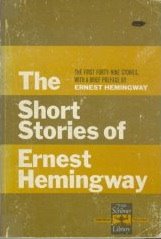 About a week after I finished this book, it was picked as the winner of this year's Pulitzer Prize for Fiction. What can I say, my wife knows how to pick 'em.
About a week after I finished this book, it was picked as the winner of this year's Pulitzer Prize for Fiction. What can I say, my wife knows how to pick 'em.I had read an interview with the author, Junot Diaz, in an issue of Boldtype (an online book newsletter) and was interested in his first novel and first new work in nine years, but I can't honestly say that I would have gotten around to it had it not been gifted to me (by my wife, of the aforementioned paragraph...).
Anywho, the book sells itself (by sell, I mean, it says on the inside flap) as a story about an overweight nerdy Dominican kid who longs to be the next J.R.R. Tolkien - cool - and is convinced there is a fuku (special type of Dominican curse) on his family. It is and, well, it isn't what the inside flap says.
The Brief Wondrous Life of Oscar Wao weaves in an out of four different narrators, different time periods, is filled with footnotes on the history of the Dominican Republic (and a lot of mentions of the sexual exploits of its former leader, Trujillo, and his posse, who seem like a bunch of old school gangsters), and, all in all, is a fairly tedious book to read. Not that it wasn't enjoyable, but there were moments with promise that did not come to fruition.
I must say that I was expecting something different, something far more fantastic (i.e. out there, fanciful) because the inside flap did mention Tolkien and I love Tolkien - he's mentioned only a few times. And the idea of a curse on the family was great, but it took too long to get to and the journey to the curse was a lot of wading through muddy waters with no meaning, so that, when all was said and done, you had little more than you started with, which was a cool opening quote and a bad-ass narrator.
Perhaps if I hadn't read the inside cover, I might have been more satisfied by the oodles of comic book references and the snappy dialogue, not to mention the narration.
So, the narration.
Diaz is a great writer, you can tell, and his style is certainly original. Reading this book, it's easy to get lost in the prose and imagine that you're sitting with Junot Diaz (or whoever's narrating the story) in a coffee shop, and he's smoking a cigarrette and telling you about the fuku of this family, about the fuku Oscar tried to stop. He curses, slangs, and rolls his way along, and you feel like you're right there, not in the story, but in the coffee shop, with Junot Diaz.
That's the books biggest fault and most lauded champion. It's the (dare I say) fuku of the book, what makes it good also makes it bad. We all bring our own history to a book we read, or any art, and we see through that prism. Maybe my prism's slanted, and because I wasn't expecting what I got, I was disappointed. I'm not doing a great job of selling the book, so I will say this: the writing was amazing, and reading Oscar Wao is worth it for the sheer tenacity of the language, the raw power Diaz writes with. It's definitely not a waste of time, all fuku's aside.
And the cover's pretty cool.




